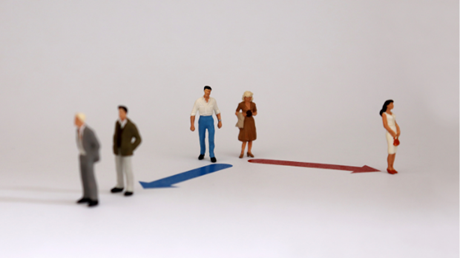How we can learn from the impact of the 2016 U.S. Presidential Election on politically divided relationships.

Wrapped in the fog of COVID-19 and election-induced fatigue, my emotions are clustered together: weariness, frustration, disappointment… I feel little from the other side of that valence chart, where we find excitement, enthusiasm, joy, and elation. The latter word reminds me of the interview with Eric, one of the participants in our study, which explored the impact of the 2016 Presidential Election on the politically divided relationships. The study's principal investigator, Dr. Hannah Bayne from the University of Florida, gathered a politically diverse team: two researchers identified as "liberal" and two as "conservative." Hannah came up with an idea partly to cope with her own relational discord following the 2016 Presidential Election. We interviewed parents and adult children, spouses, best friends.
Eric just told me a story about how he had snuck out of the house and rode his bike to the polling station. His wife did not want him to vote. She asked him to promise her that he would not vote for Trump. Voting for Trump in California, Eric reasoned with himself, would not make any difference anyway. Struggling to bridge the growing divide, Eric wanted to make peace with his wife. Then, on November 8, 2016, he woke up feeling uneasy about his predicament and, eventually, grew more determined: to be true to himself, he needed to vote. I sensed Eric's hesitation as he started to tell his story, so I shared that I had voted for Trump. The self-disclosure might have helped with our rapport then, but it has also probably instantly distanced you, CT reader, now. This is affective polarization at work. Unlike a disagreement based on policy issues, we can experience instant, pervasive disdain ...
from Christianity Today Magazine
via

.gif)

.gif)

.gif)
.gif)
